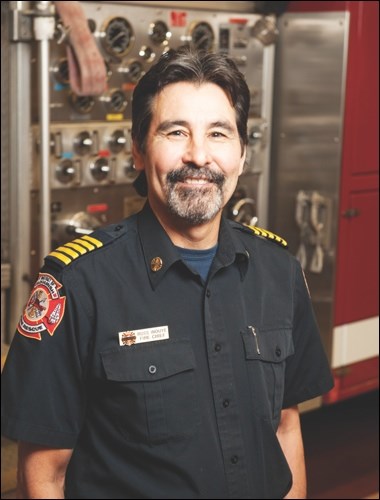��
Fire Rescue Chief Russell Inouye is beginning his long good-bye from the �鶹�����fire department.�� He officially retires Feb. 27, but his last day at the fire hall will be Jan. 16. The �鶹����� caught up with Inouye for a chat about his time fighting fires, his plans and the future challenges facing fire rescue.
��
A: What have been some of the highlights of your career?
A: Certainly becoming the fire chief (in 2011). It was never a goal that I had set out and it certainly caught me by surprise, but that was one of the big highlights of my career. As I have moved through the department. I started out as a volunteer and then became a career officer and so I have worked almost every job in the department.
��
Q: And what have been some of the lowlights?
A:�� I have been in �鶹�����27 years and you become integrated in the community. You know a lot of people, formally and informally. Anytime there is a fatality or any kind of tragedy in �鶹�����– we attend a lot of those – I have found it sort of takes a toll on you, in the sense that it always hits you personally one way or another.��
��
Q: How has the department changed in the time you have been with it?
A: The fire service has become safer and much more regulated.
And while we are still a very tightknit group, the demographic of the fire department has changed. When I first started, we were a resource-based community and everybody worked in town (on other jobs).
We now have probably 60 per cent of our volunteers who work out of town in the daytime.
��
Q: Have the types of calls you go on changed?
A: We go on far more medical aid calls than we ever used to, but that is part and parcel with changing our response model. The one thing I can say, while we still go to the same number, proportionally, of motor vehicle accidents on the highway, the increase in safety technology in cars and vehicles combined with the improvements to the highway have resulted in far less injuries and fatalities that we attend.
��
Q: Did you ever have to call on the fire department for any reason?
A: Yes, I did actually. The very first year I moved here – I wasn’t on the fire department – and we had a pretty significant wind storm that blew in and I had a couple of trees fall on my house. I called, and while they didn’t remove the trees, they made sure they moved all the branches and made sure everything was safe. That was my first introduction to the fire department.
��
Q: What are some issues you see the �鶹�����Fire Rescue needing to address in the coming years?
A: There are a lot of positive things going on in Squamish. I think the growth is going to explode in the next five to 10 years, with the [�鶹�����Oceanfront Development Lands]— that is going to have a really big impact, there seem to be a number of big developments coming up. The rapid growth is going to be a challenge for the fire department, and for �鶹�����in general, and while growth is a wonderful thing, it is being able to manage our ability to grow with the community and at the same time be part of a planned growth instead of being reactionary to what is growing on.��




